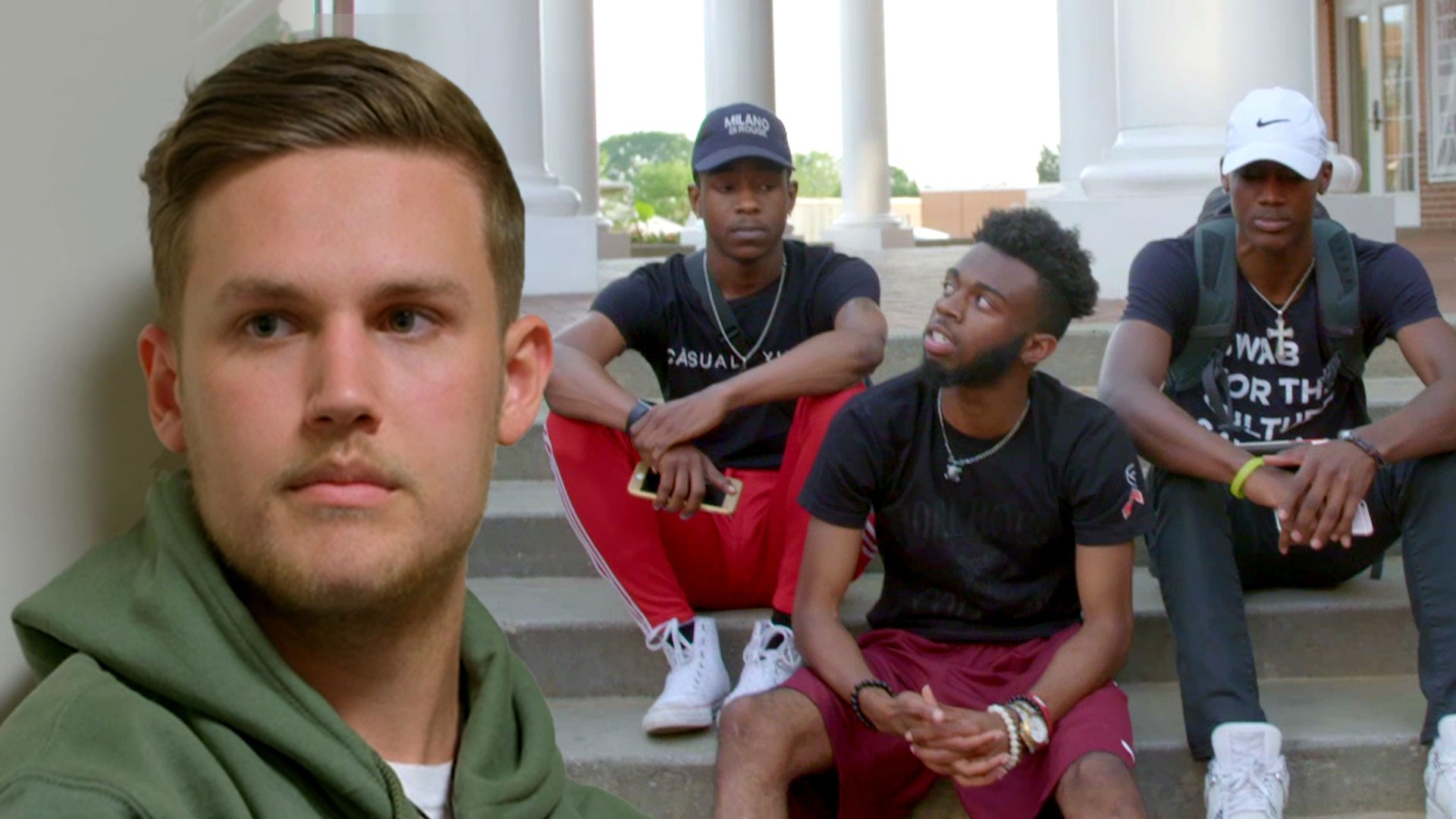It's hard to track every terrible thing happening in the country these days, but on top of everything else rattling around the already aggression-addled national psyche, white women apparently won't stop calling the cops on people of color for no reason at all. This is a well documented phenomenon, but two recent viral incidents stand out: In April, Oakland resident Jennifer Schulte, now known as BBQ Becky, called the cops on two black men because of a dispute over whether they were allowed to use a charcoal barbecue in a public park (which she referred to as "her park"). And this past weekend, the world was introduced to Permit Patty, a white woman named Alison Ettel who purported to call the cops on an eight-year-old black girl selling bottled water on the street in an effort to raise money for a trip to Disneyland after her mother, Erin Austin, lost her job.In the video, Austin (who is filming) says, "This woman don't wanna let a little girl sell some water. She calling police on an eight-year-old little girl," as Ettel attempts to hide by ducking behind a short cinderblock wall. "You can hide all you want, the whole world gonna see you boo," Austin says as Ettel's face, visably dismayed, comes into the frame. Facing the camera, Ettel grimaces and says into the phone, "Yeah, and uh, illegally selling water without a permit."

Ettel's newfound role as a social media villain has allowed her to see herself as the real victim. On the Today Show, Ettel talked about the onslaught of hate mail she's received. "All kinds of hateful threats," she said in tears. "Horrible images and death threats."But in a world where cops can arrive on the scene with their guns drawn, summoning the police can be a death threat too. The cops are not customer service. They are not conflict resolution specialists. They spend all day dealing with violent crimes, and can bring violence to situations even when the caller doesn't want them to. They sometimes handle petty disputes well, as the cops did when they responded to BBQ Becky, but if there were even a 1 percent chance of officers escalating the situation, should you call them? No, you should not. (Many cities have 311 lines for non-emergency complaints.)With each Permit Patty incident, white people have an opportunity to learn something new about the internalized racism we may not be conscious of, to examine the underlying assumptions that cause them to understand people of color barbecuing or selling water as a threat. The moral of the story is, "Don't call the cops on people who aren't doing anything wrong." But the moral is also, "Why do I feel so threatened I need to involve the state—in the form of men with guns—in this dispute?" Ultimately, aggression rarely solves conflicts. Ettel didn't actually achieve her goal of getting the girl to quiet down. Instead, she made everything louder, opening her up to hostility from strangers by way of becoming the latest poster child for white privilege.The ultimate villain in all of this is not these 911-happy women, but the culture that imbues us with racist instincts. Someday, we may defeat that villain. For now, please just don't call the cops.Sign up for our newsletter to get the best of VICE delivered to your inbox daily.Follow Eve Peyser on Twitter and Instagram.
Advertisement
This interaction has already been carefully dissected by news outlets. In an interview with HuffPost, Ettel explained that she became frustrated by the girl's persistent salesmanship. “It was literally nonstop. It was every two seconds, ‘Come and buy my water.’ It was continuous and it wasn’t a soft voice, it was screaming," she said. "I had been putting up with this for hours, and I just snapped." She also claimed that she only pretended to call the police and that “this has no racial component to it." Austin disputed Ettel's retelling of what happened. "She never asked us to be quiet. She came out and directly demanded to see a permit to sell water from an eight-year-old," the mother said.The specifics of this dispute aside, the racial politics of threatening people of color with the cops during an epidemic of racist police violence are beyond ugly. The Black Lives Matter movement was birthed in an attempt to protest this violence, and for years the police brutality people of color endure has been part of the national conversation. How ignorant of the potential consequences do you have to be to threaten to call the cops on a child, or actually call the cops on someone just having a party in the park?
Advertisement

Ettel's newfound role as a social media villain has allowed her to see herself as the real victim. On the Today Show, Ettel talked about the onslaught of hate mail she's received. "All kinds of hateful threats," she said in tears. "Horrible images and death threats."But in a world where cops can arrive on the scene with their guns drawn, summoning the police can be a death threat too. The cops are not customer service. They are not conflict resolution specialists. They spend all day dealing with violent crimes, and can bring violence to situations even when the caller doesn't want them to. They sometimes handle petty disputes well, as the cops did when they responded to BBQ Becky, but if there were even a 1 percent chance of officers escalating the situation, should you call them? No, you should not. (Many cities have 311 lines for non-emergency complaints.)With each Permit Patty incident, white people have an opportunity to learn something new about the internalized racism we may not be conscious of, to examine the underlying assumptions that cause them to understand people of color barbecuing or selling water as a threat. The moral of the story is, "Don't call the cops on people who aren't doing anything wrong." But the moral is also, "Why do I feel so threatened I need to involve the state—in the form of men with guns—in this dispute?" Ultimately, aggression rarely solves conflicts. Ettel didn't actually achieve her goal of getting the girl to quiet down. Instead, she made everything louder, opening her up to hostility from strangers by way of becoming the latest poster child for white privilege.The ultimate villain in all of this is not these 911-happy women, but the culture that imbues us with racist instincts. Someday, we may defeat that villain. For now, please just don't call the cops.Sign up for our newsletter to get the best of VICE delivered to your inbox daily.Follow Eve Peyser on Twitter and Instagram.
